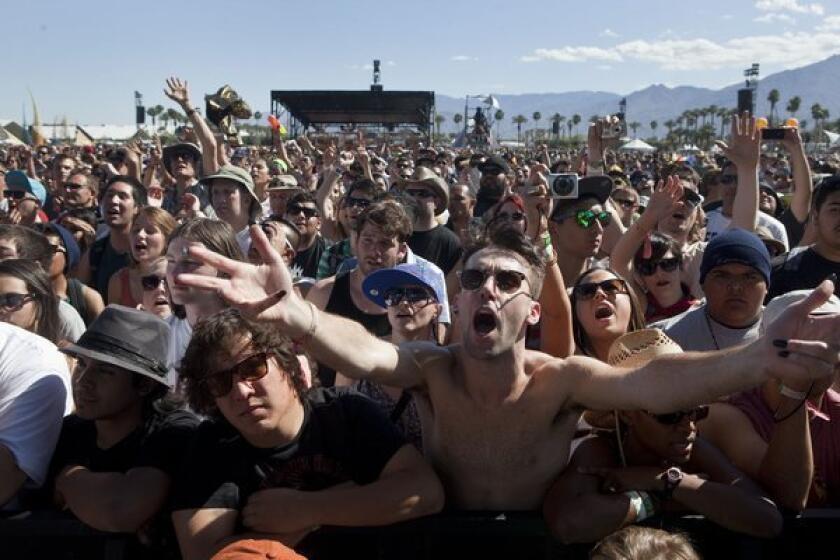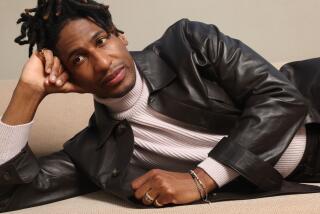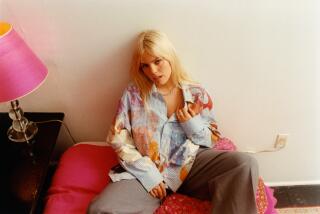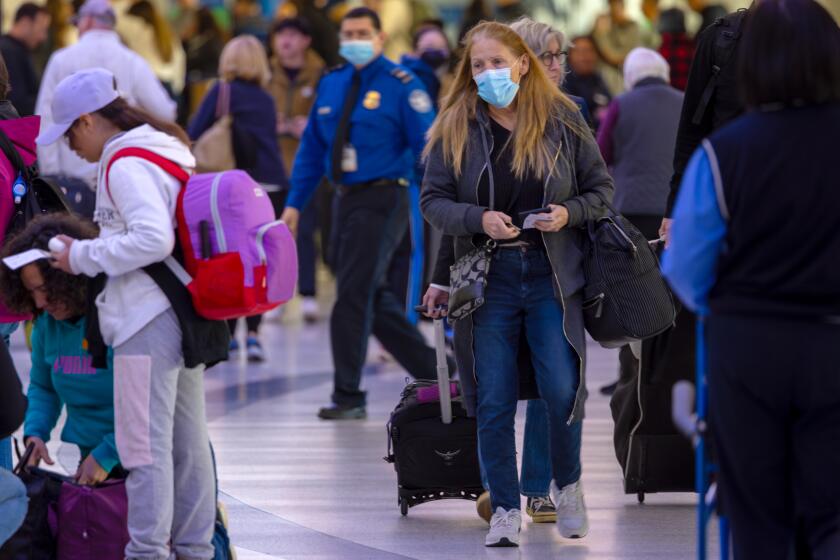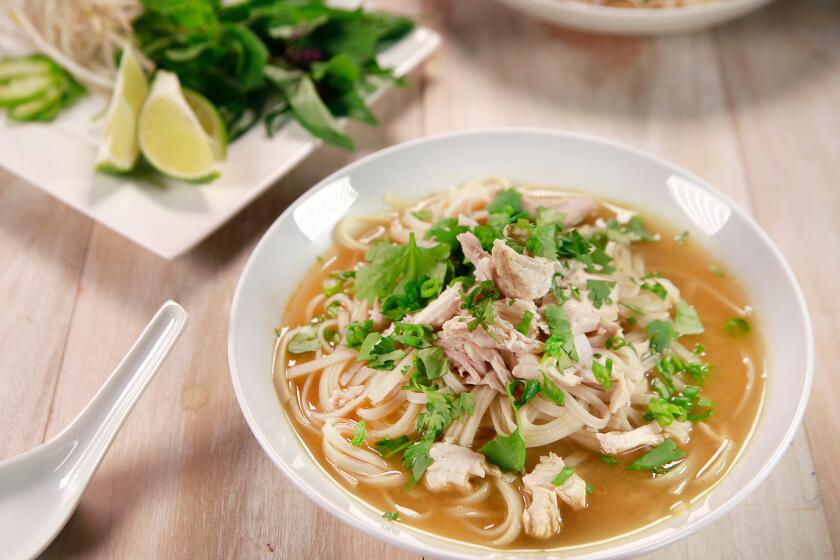Teletherapy, meds, meditation: How musicians with mental health issues are coping with corona anxiety
After 16 years as the leader of the influential emo-rock band Paramore, Hayley Williams is about to release her anticipated debut solo album, “Petals for Armor.” Like so many artists, she was scheduled to be touring the country this spring and summer, kicking off a new phase of her career, performing in front of thousands of fans, doing what she loves most. Instead, she’s at home in Nashville, in quarantine, coping with not just the effects of COVID-19 on the launch of her album, but on her well-being as well.
Williams, 31, suffers from depression, PTSD and anxiety. She has been whiling away the days the best she can, baking, cooking and listening to music. But it’s been challenging. “If I wake up and I don’t put music on, which I didn’t do today, I can feel the emptiness,” says Williams. “I can feel my thoughts racing, and I’m trying to understand the balance between running from my own thoughts when there’s good stuff to mine from them.”

Williams, who takes medication for her mental health, hasn’t had to increase the dosage, but she’s been taking supplements like magnesium and Vitamin D during the coronavirus crisis. “I increased a cortisol manager, which is a great stress reliever,” says Williams. She’s also been doing teletherapy with her Nashville therapist, to which she grew accustomed when she was in L.A. finishing her album. “Even when I don’t want to do it, which I didn’t want to do last week, I get finished and I’m like, ‘Oh, man,’” she says, breathing a sigh of relief.
Epidemiologists and government officials agree that large-scale concerts and festivals can’t be safely held until 2021, a crushing blow.
This is a precarious time for musicians. Live concerts, the main source of revenue for most artists, have been canceled for the foreseeable future. Albums have been delayed, sometimes for months, sometimes indefinitely. Musicians who are used to traveling in packs and waking up in a different town every night are now stuck at home indefinitely, worried about their next gig, if not their next meal. Everyone is struggling with uncertainty. For those with mental health issues, the stress can become unmanageable.
“About 80% of my clients are in the music industry in some way — from managers and publishers to performers and roadies. They came in initially because of unresolved trauma and anxiety,” says Nashville-based trauma therapist Dr. Lee Norton. “Now, most of them are facing an economic crisis as well, which can resurrect feelings of dependency and powerlessness, and create existential anxiety and identity confusion. It’s daunting especially for those with high-risk factors and less resiliency.”
Dr. Courtney Grimes is a psychotherapist and founder of the Collective, an eight-week program based in Nashville centered around group therapy. “During this pandemic, I’m seeing anxiety go through the roof,” says Grimes. “Tours are getting canceled, sessions are being canceled. Musicians are terrified that they’re going to lose their fan base because they can’t do shows, they can’t do meet-and-greets. They can’t be around anyone.”
Williams is just one of a growing number of artists who have been open about their psychological issues. In the social media age, musicians have increasingly been detailing their experiences with addiction, trauma and treatment, helping to normalize the conversation around mental health.

Demi Lovato has long been open with her fans. In 2011, she publicly revealed she was diagnosed with bipolar disorder and has since shared that she’s battled self-harm, addiction, bulimia and anorexia. Just a few weeks before she overdosed in July 2018, Lovato opened up about falling off the wagon in her single “Sober.”
Like Lovato, Selena Gomez has also been candid about her health, revealing she has sought in-patient treatment for anxiety and depression. In January, Gomez revealed that she found a medication that works for her, and in early April, she shared that she was diagnosed with bipolar disorder. Last year, she was featured on Julia Michaels’ song “Anxiety.” For both Lovato and Gomez, their personal demons have become a throughline of their artistry.
They’re not alone: In her Netflix documentary “Miss Americana,” which debuted in January, Taylor Swift shared that she previously faced an eating disorder. Rising R&B star Summer Walker had to cancel two-dozen tour dates last year because of her crippling social anxiety. In his docuseries “Seasons,” which premiered in January, Justin Bieber disclosed his own psychological struggles, as he traded illegal substances for antidepressants to help him “get out of bed in the morning.”
A study conducted by Record Union in 2019 reported that 73% of independent musicians have experienced stress, anxiety or depression “in relation to their music creation.” That was before COVID-19.
New York-based clinical psychologist and musician Dr. Ezra Feinberg has been seeing a lot of his artist clients “getting very close to the edge financially.” “It’s not even really about, ‘How do I keep going with this’ as much as it is, ‘How do I figure out a way to continue to live, to live in my apartment, to put food on the table?’” says Feinberg. “And all of that has been upended for certain folks.”

Linnea Siggelkow, a.k.a. Ellis, just released her dream-pop album “Born Again,” at the beginning of April. Her plans to hit the road have been put on hold because of the quarantine, and she’s been stuck at home in Hamilton, Ontario. Diagnosed with depression, general anxiety disorder, premenstrual dysphoric disorder and social anxiety, she’s found peace in maintaining daily rituals like sitting with her morning coffee, practicing guitar or exercising. She has been on-and-off medication — currently off. “I have been wondering if I might be feeling better if I was [taking medication], but I am too afraid to even try to see a doctor right now about it,” says Siggelkow, 30.
Singer and Beyoncé collaborator Diana Gordon, 34, also just released an EP, “Wasted Youth,” in April. She deals with anxiety, depression and PTSD. “I’m sometimes on edge, so much that my mind won’t allow itself to shut down,” Gordon says. She’s still promoting her release while quarantining at home in L.A.
Rising singer-songwriter Delacey, 28, who co-wrote Halsey’s “Without Me,” has suffered with anxiety and depression over the years. With the release of her debut body of work “Black Coffee” in March, she was supposed to be on tour promoting the album. Now, she’s been stuck at home in L.A. and trying to remain optimistic. “There are many people around the world who have it way worse than me,” she says. “I will get to play shows one day when we are all healthy and safe again.

Like Hayley Williams, Katie Von Schleicher is preparing to promote a new album with the release of “Consummation, due May 22. Von Schleicher battles anxiety, and with the current climate she’s been considering going on medication once again. “I’m in the process of figuring out what would be best to take,” says Von Schleicher, 33. Being alone at home in her Brooklyn apartment hasn’t helped her during this difficult time. “I have like a lot of obsessive tendencies around, well, many things, but especially health stuff,” she says. “And if I’m alone in my house and I can’t do anything about that, I experience all these feelings, and it’s hard to tell if they’re psychosomatic.”
Some artists have still been able to maintain their creative output amid the chaos. Shinedown’s bassist Eric Bass, who suffers from clinical depression and anxiety, with manic moments, has been using self-isolation as a time to write: “It doesn’t matter if it’s terrible. It doesn’t matter if it’s great. For me, the ticket is creativity.” Still, he understands that it’s a precarious time for artists, where imposter syndrome is taking over. “When you’re an artist, one day you’re a hero, and the next day you’re a fraud,” he says. “And, that’s very true, especially right now.”

Being at his Charleston, S.C., home for the past month, Bass, along with his bandmates, have been trying to also find purpose while in quarantine. Together, they have been working directly with nonprofit aid foundation Direct Relief to provide face masks, gowns and medical equipment to doctors and hospitals. The group has since raised more than $200,000 with their charity single, “Atlas Falls.”
Other musicians have been trying to find moments of self-care where they can. Indie-rock singer Liza Anne, 26, battles major depressive disorder. Her bold 2018 album “Fine But Dying” tackled managing mental illness while falling in love. “The valleys I’ve felt mentally and emotionally feel like a new low,” she says now. At the same time, she’s had time to “develop meditative practices and new thought patterns” to handle daily life.
Some ways for artists to self-care during the pandemic, according to Dr. Norton, include taking in as little caffeine, sugar and processed foods as possible, because “they are inflammatory and affect our thoughts and emotions,” and avoiding more than two hours of social media, television and video games per day.
Dr. Grimes advises her patients most of all to “stay as connected as you can, whether it’s phone calls or Zoom. I’ve got some folks who go to a park, bring their guitars and they just sit in a circle. They’re all six feet apart from each other, but they make contact with other people, through music.”
More to Read
The biggest entertainment stories
Get our big stories about Hollywood, film, television, music, arts, culture and more right in your inbox as soon as they publish.
You may occasionally receive promotional content from the Los Angeles Times.
